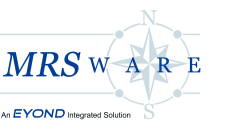
The key takeaway from this event is that Operation London Bridge was planned well in advance of the Queen's death and was revised over the years to keep it current and relevant. The plan was comprehensive, including all details from the death announcement to the details of the State Funeral to the duration of the mourning period. They even included a plan outlining actions to be taken should her death occur in Scotland (Operation Unicorn).
How can we learn from this event? The first and most important lesson is that a succession plan is an essential part of any business. The plan must also be looked at frequently, revised when needed to keep it up-to-date, and include implementation and communication details for all affected parties.
- death of a key individual in the organization (owner/top sales rep)
- departure of a key individual in the organization (retirement/better job offer/furlough/firing)
- loss of a key line
Each of these situations may call for a different plan. Remember a succession plan provides continuity, security, and direction for those left behind when a loss occurs. It also provides comfort to those outside the organization - Principals, customers, and other business associates - who want to know that the company they are working with has plans to carry on without missing a step.
One way to make your plan easier to work with is to make use of your CRM program. Your program already contains sales rep assignments, key Principal and customer information - activities, current opportunities, projects, and jobs, orders placed, and past sales made. If new roles or customer reassignments are needed, those involved can review all the necessary details to ensure nothing falls through the cracks during a transition.
Execution of the plan is equally important. The ability of everyone to know who, what, when, and how they are going to handle their new role/new tasks is essential to move forward effectively. This means that the plans have to be discussed with all stake holders and training must be made available.
Last but not least, a key component is communication. Your plan should include details about when, how, and what type and method of announcements are sent out. Communication is very important in any of the cases mentioned above; fear of the unknown is very real for not only your employees, but also your business partners. Your employees will want to know what changes are coming and how these will affect them. Your business partners want to know that you have a plan, and you are prepared to put that plan into action so that their interests and concerns are addressed and are safe with the new situation.
In summary
- what's the aim of the plan
- who's involved
- how will the plan be implemented
- when will we communicate our plan
With your plan in place, whenever a crisis occurs, you will be able to keep calm and carry on.

 RSS Feed
RSS Feed